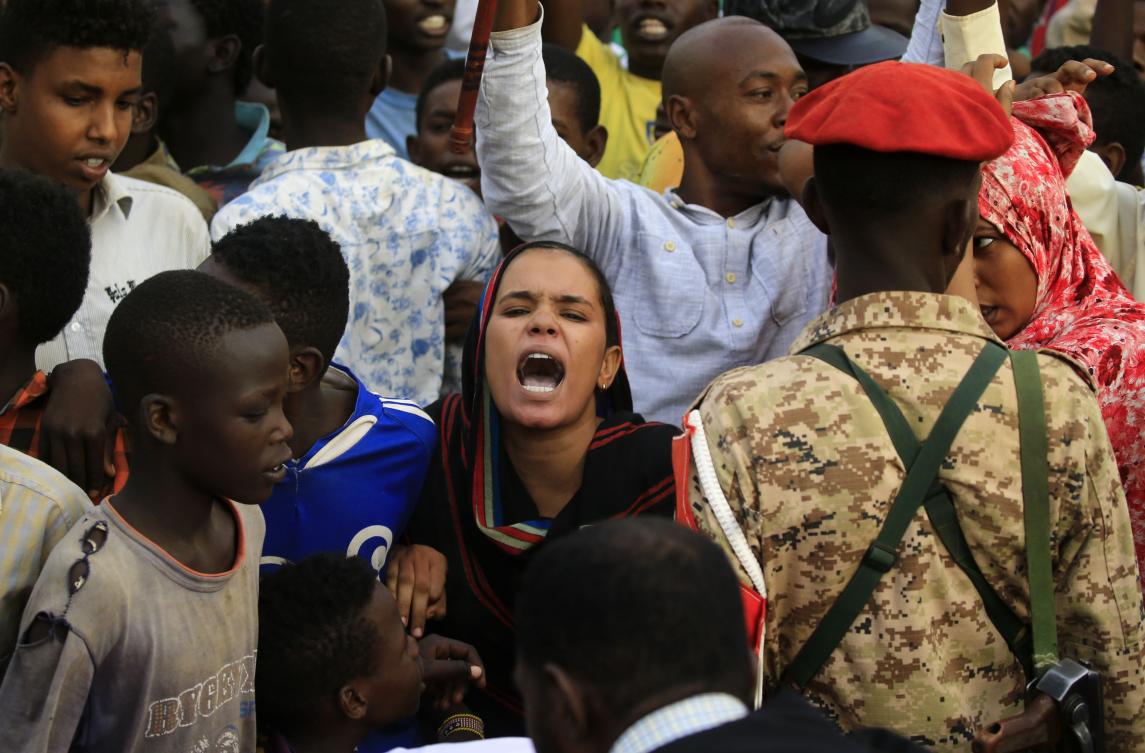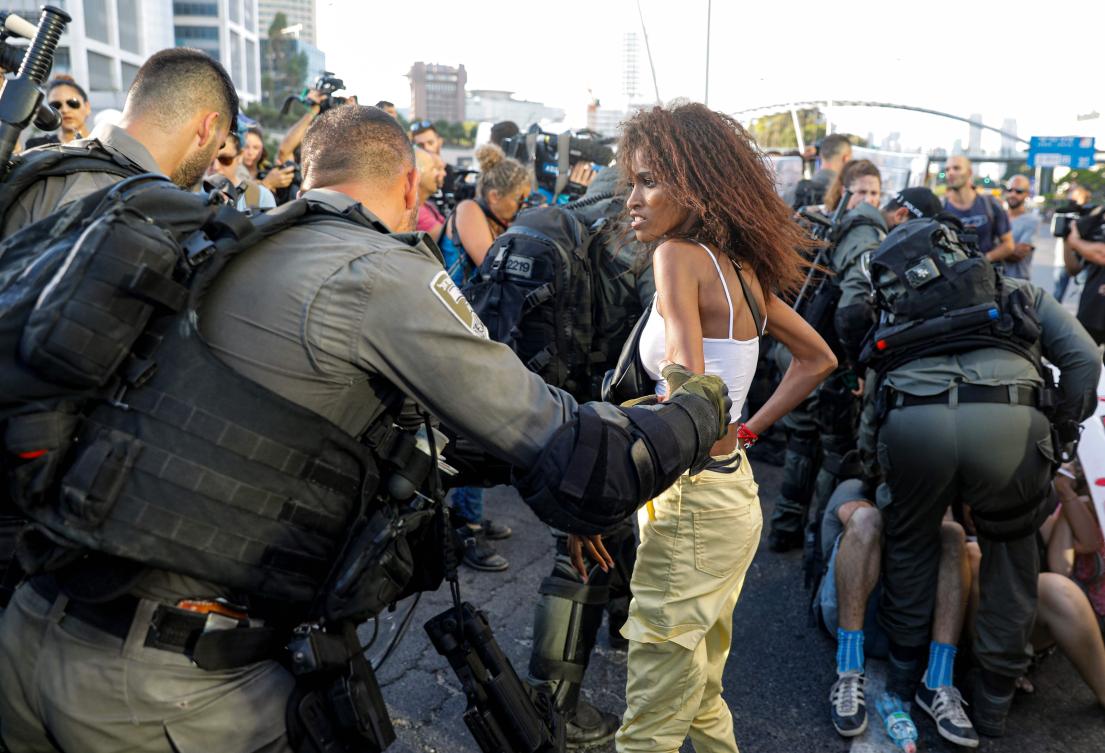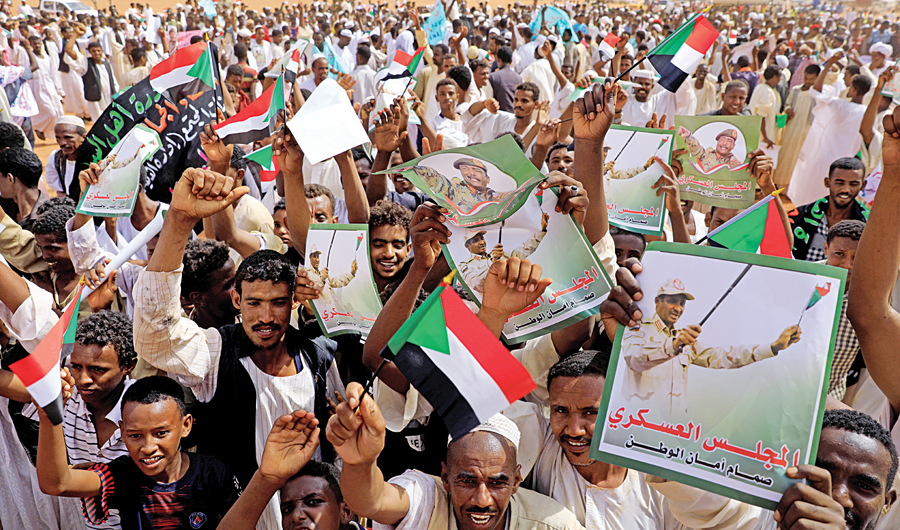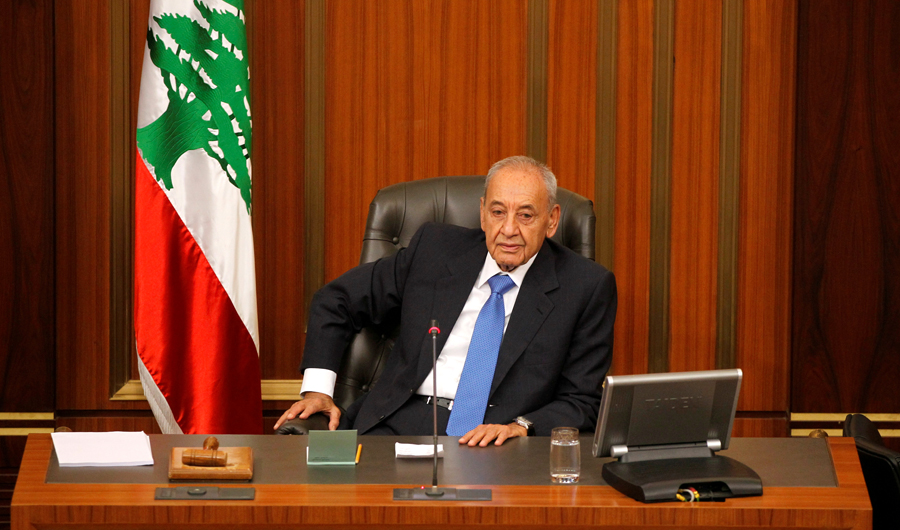TOKYO: Japan has offered to play a role in the Palestinian-Israeli peace process in the wake of White House adviser Jared Kushner’s Peace to Prosperity workshop last month in Bahrain.
“We can play an honest broker in the Middle East, as we have no colonial history or negative footprint in the region,” Japanese Foreign Minister Taro Kono told Arab News.
“I think we should all play some role to get the peace process rolling forward and we would be very happy to be involved in this process.”
In a wide-ranging interview, Kono said Japan was keen to expand its already strong ties with Saudi Arabia beyond industry and energy, and the relationship was discussed by Saudi Crown Prince Mohammed bin Salman and Japanese Prime Minister Shinzo Abe when Japan hosted the G20 summit in Osaka.
The Japan-Saudi Arabia Vision 2030 agreed in 2017 “includes cultural exchange, entertainment and many other (aspects),” Kono said. “I think we can go even deeper in our bilateral relationship.”
The following is the full interview, which took place at Kono’s office in the Japanese foreign ministry building in Tokyo.
*********
Arab News: The Osaka G20 was marked, actually, with exceptional time and access granted for Crown Prince Mohammed bin Salman with Prime Minister Abe, both as the host of the next G20 and to discuss bilateral relations between Japan and Saudi Arabia. Can you please shed light on the bilateral conversations between Japan and Saudi Arabia during the G20?
Taro Kono: Mainly we confirmed the progress of Japan and Saudi Arabia’s Vision 2030. The Japanese government and the Japanese private sector are determined to support His Royal Highness’s reform agenda in the Kingdom, and when His Majesty King Salman visited Japan in 2017 we agreed on this Japan-Saudi Arabia Vision 2030.
Our relationship started out with Japan’s import of crude oil and export of automobiles, but we wanted to develop the relationship further, so it’s not limited to energy and industry, but this vision includes cultural exchange, entertainment and many other (aspects). So, it’s a very diversified relationship between our two countries and the PM and His Royal Highness confirmed that we have made much progress; so we agreed on the next stage, Japan-Saudi Arabia vision 2030 version 2. I think we can go even deeper in our bilateral relationship.
AN: So if you were to summarize this vision and its second installment, what would the Japanese-Saudi relationship look like in 2030?
TK: Well, we should have more exchange of people, and Japanese companies investing in Saudi Arabia. There are mega-projects that His Royal Highness is taking leadership (on) and we hope many Japanese companies participate in these projects, as well as (increase) Saudi investment into Japan — and not limited to economy, we hope to receive more Saudi students coming to study in Japanese universities and we’ll be happy to send Japanese students to Saudi Arabia.
AN: So, Crown Prince Mohammed bin Salman has several times expressed his interest in the Japanese model and its success story. You’ve met with him on several occasions; how do you describe your encounters and what aspects of Saudi Vision 2030 do you think are the most aspirational?
TK: His Royal Highness is very much interested in keeping Saudi history and tradition but at the same time (he would) like to develop Saudi economy and society. This is similar to what Japan has been doing. We introduced Western technology and the idea of democracy, but at the same time we have kept Japanese values, traditions and the Japanese way of life. There is a lot in common between Arab culture and our culture, like respecting elders or putting importance on family. So, we would be very happy to share our experience and work with his vision.
AN: There was an unfortunate incident recently with the attack on a Japanese ship during the recent visit of PM Abe to Tehran to mediate and try to avert a crisis in the region. This has been labelled in the media as a direct insult to the foreign policy of Japan. We want to understand from Japan what measures can be taken to prevent such an atrocious attack from happening again, and will this deter Japan’s efforts in the region?
TK: Well, as you know, Japan does not produce any crude oil domestically. Our energy depends on imports, mostly from the Gulf region. Forty percent of crude oil we import comes from Saudi Arabia and 80 percent of crude oil we import goes through the Strait of Hormuz, as well as 20 percent of our natural gas. So stability and peace in the Middle East are directly connected to our economy.
It is not just Japan; South Korea, China, and India all depend on the energy sources coming through the Strait of Hormuz. So for Asia, and I would say the global economy, we all depend on the region’s peace and stability, and a safe passage through the Strait of Hormuz. So Japan strongly condemns any attack on ships going through the Strait, and we strongly condemn Houthi attacks with missiles and drones on Saudi people and Saudi facilities.
When Prime Minister Abe visited Iran, it was the first time in 41 years that a Japanese prime minister had done so, and the Supreme Leader as well as President Rouhani told him that Iran had no intention to develop nuclear weapons, and that nuclear weapons are against the teachings of Islam.
So, if that is true, we have nothing to worry about. We hope Iran will keep to the nuclear deal. Japan called for every concerned country and concerned party to ease tension in the Middle East. Any differences need to be sorted out through dialogue.
AN: Are any extra measures being taken to protect your ships? To protect Japanese interests?
TK: Well, we are hoping that no further attacks will happen to any ships of any country going through the Strait of Hormuz.
AN: There has been a recent interesting development when President Trump visited North Korea straight after the Osaka G20. What is the Japanese position regarding this, and what do you expect from your Arab allies when it comes to deterring North Korea’s nuclear threat?
TK: After the (February 2019) Hanoi summit there was no designated (communication) window on the North Korean side, so when I spoke with US Secretary of State Mike Pompeo he couldn’t really reach out to his counterpart in North Korea as he didn’t know who the counterpart was.
But because of Twitter diplomacy, I think it was a very bold move by President Trump because if Chairman Kim Jong Un didn’t show up, the media would have criticized President Trump; but he (Trump) took the risk and he went there, had a meeting for 45 minutes and the United States and North Korea have agreed to designate the communication window. So, it will be Mike Pompeo and Steve Biegun on the US side and North Korea will nominate somebody to be the counterpart to them.
We welcome this development, it is a big push to restart the process, but what matters is what’s going to be negotiated. So now we’re going to be talking about the substance of the negotiations. As for Arab countries, we are very happy that they have been implementing United Nations Security Council resolutions, so the sanctions are binding North Korea’s economy and that is the driving force for them to come to the dialogue.
So, we appreciate all the Arab countries’ full implementation of the Security Council resolutions, and we hope to work with Middle Eastern and Arab countries to continue doing this.
AN: As you know, straight before the G20 the Manama “Peace to Prosperity” workshop for Palestinians was held, revealing the economic side of Jared Kushner’s peace plan. The Palestinian side didn’t attend. However, Japan’s name has been floated as a backer of the economic effort. What is your involvement level and would you be prepared to play a political mediator role if invited?
TK: Well, ever since I became foreign minister I have put much emphasis on Middle East affairs. I believe Japan should play a bigger political role in this region because Japan is religiously and ethnically very neutral. We can play an honest broker in the Middle East, as we have no colonial history or negative footprint in the region. Also, our economy depends on the energy coming from the region so I think we have to increase our role in the peace process as well.
Japan has been investing quite heavily in the West Bank. We have worked with Palestinians, Israelis and Jordanians to set up an industrial park near Jericho and it’s been going very well. Also, Japan set up a framework called the CEAPAD (Conference in Cooperation among East Asian Countries for Palestinian Development) to bring Southeast Asia to this peace process. We wanted to share how we develop the Asian economy and we want to share our experience with Palestinians and people in the region.
We have been communicating with Mr. Kushner and we are now reviewing his economic plan. It looks nice and we need to see what the political side might look like. If the political side is good, I think we should all play some role to get the peace process rolling forward and we would be very happy to be involved in this process. So, we hope the Palestinians look at the (Kushner) plan and are ready to negotiate. We need to give hope and dreams to the younger generation in Palestine so we would be happy to work with any concerned parties.
AN: So if they invite you (to mediate), you would take the opportunity?
TK: I’ll be very glad to, yes.




